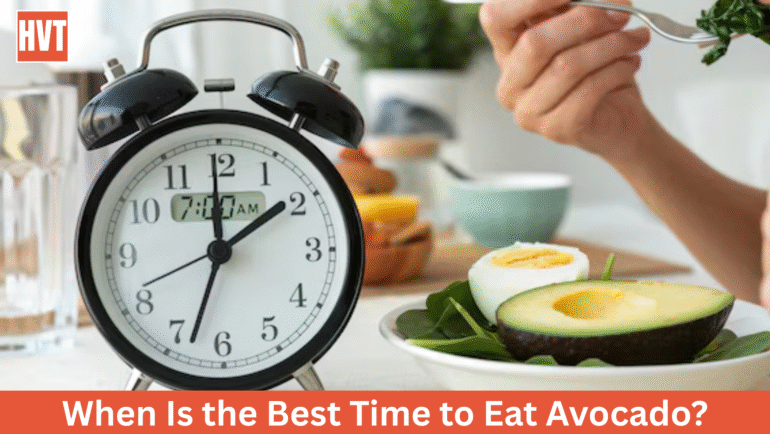
Who Should Avoid Avocados? Discover If You Fall Into the Risk Zone
While avocados are a nutrient-dense superfood, certain individuals should limit or avoid them due to allergies, digestive issues (IBS), or specific health conditions.

In the previous article, we have already learned about the advantages and disadvantages of eating avocado.
As a health and fitness advocate, I always say – “Food or exercise, whichever it is! Everything needs to be in measured quantities”.
Speaking of avocados. Yes, they are packed with healthy fats, fiber, and essential vitamins, which makes it a superfood. However, it is still not suitable for everyone.
Below are some of the key groups of people who should be cautious before including avocado in their diet.
1. People with Latex-Fruit Syndrome (LFS)
For people with latex allergies (sap of the rubber tree), it is necessary to know that avocado also contains similar properties.
This can give similar latex allergies, such as itching, swelling, or even anaphylaxis (life-threatening allergic reaction).
If you are already allergic to latex, bananas, or kiwis, consult a doctor before eating avocados.
📌 Relevant Study: Latex-Fruit Syndrome: Clinical and Immunological Cross-Reactivity

2. With FODMAP Intolerance or IBS
Avocados are high in polyols (sorbitol), a type of FODMAP that can cause bloating, gas, and diarrhea in people with Irritable Bowel Syndrome (IBS) or FODMAP sensitivity.
If you are considering following a low-FODMAP diet, consider consulting a registered dietitian for personalized diet plans.
3. Individuals on Strict Low-Fat or Calorie-Restricted Diets
Avocados are a calorie-dense food and have high-fat calories (about 240 calories from fat in a medium avocado). Fats are an essential macronutrient for people following a low-calorie diet.
But if you fail to keep track of calorie intake from Fats, it will surely lead to weight gain.
This will be confusing for you, as it is difficult to track calories from fat, because most of the eligible fats are liquid (avocado or olive oil).
I highly recommend getting your macros calculated by a nutritionist and following the numbers strictly.
📌 Relevant Stat: USDA Avocado Nutrition Facts
Also Read
➧ Best Time to Workout for Fat Loss according to fitness expert.
➧ When Is the Best Time to Eat Avocado? Ideal Time and Portions
4. People Taking Blood-Thinning Medications (Warfarin)
Avoid consuming too many avocados if you are already taking blood-thinning medications. As it may reduce its effectiveness in the body.
Consult a Registered Dietitian before increasing avocado intake.
📌 Relevant Study: Vitamin K and Warfarin Interaction
5. Those with Avocado Allergies (Rare but Possible)
Though it is very uncommon and rare that people have reported allergies from eating avocado. But it’s not an impossible situation.
If ever faced this situation, it may show symptoms such as oral allergy syndrome (OAS), or symptoms similar to latex-fruit syndrome.
📌 Relevant Evidence: Oral Allergy Syndrome Overview
6. Individuals with Liver or Gallbladder Issues
The high fat content in avocados may exacerbate symptoms in people with gallstones, gallbladder inflammation, or fatty liver disease. A low-fat diet is often recommended in such cases.
A low-fat diet is often recommended if symptoms such as gallstones or gallbladder inflammation are observed, which may be experienced by consuming high fats from avocado.
📌 Relevant Study: Dietary Fats and Gallbladder Disease

7. Babies (First Solid Foods Consideration)
While avocados are safe for babies, introducing them too soon (before 6 months) into a baby’s nutrition is not advised. It can cause digestive discomfort.
Always consult a pediatrician before making any dietary changes to your infant’s diet.
📌 Relevant Guideline: WHO Infant Feeding Recommendations
Also Read
➧ What Are the Disadvantages of Eating Avocados?
➧ Does Avocado Spike Blood Sugar?
Final Learnings
Being a health-conscious person is not all about following the best diet or exercise plan.
First of all, understand this – “The concept of health, fitness, and nutrition differs for all people, ages, medical conditions, and personal goals“.
Avocados are nutritious, but they can react differently for all. This leads to only one solution. If you are an individual with special dietary requirements, consider talking to a nutritionist.
Disclaimer: This article is for informational purposes only and does not offer medical advice or guarantee results. It is not intended to diagnose, treat, or cure any condition. Always consult a qualified healthcare professional before making lifestyle changes.








